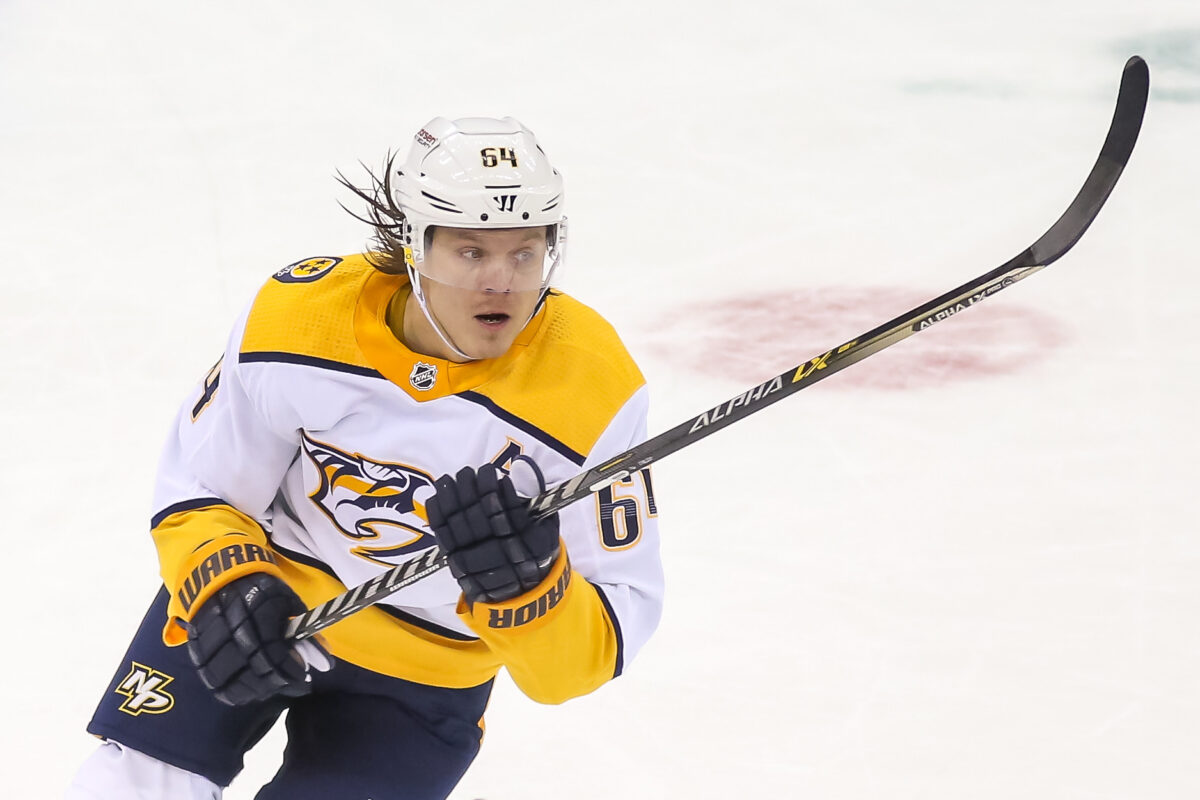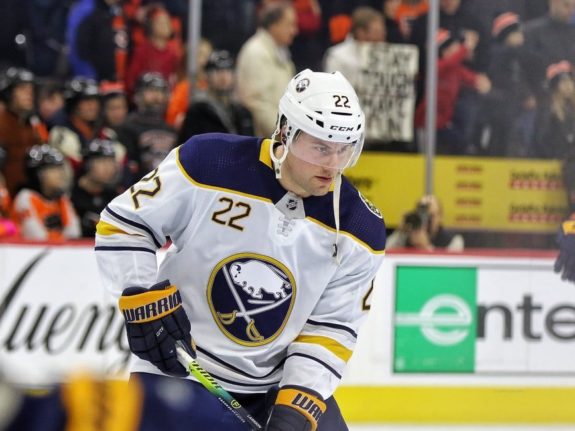The 11th installment in this series has arrived after looking at how the Minnesota Wild did in their first 10 drafts. If you missed any of them or want a refresher, you can find those recaps below:
- 2000: Franchise’s Inaugural Draft
- 2001: Minnesota Gets Its Captain
- 2002: Late Round Woes
- 2003: Most Disappointing Draft Yet
- 2004: A Draft With No Standouts
- 2005: Starting the New Era Off with a Whimper
- 2006: More Missed Opportunities
- 2007: Prospect Cupboards Continue Being Empty
- 2008: Another First-Round Bust
- 2009: O.K. Draft to Finish the Decade
After missing the playoffs in the previous campaign, the Wild failed to qualify for the postseason once again in 2009-10. The team finished with a 38-36-8 record (84 points) while allowing 246 goals on the season, which is the most goals allowed by any Wild team to this day. In other words, a lot needed to be fixed over the offseason. With a top-10 pick at the 2010 NHL Entry Draft, who did the Wild seek for help? And did they succeed in that regard?
Early Rounds (1st and 2nd)
Round 1, 9th Overall – Mikael Granlund, C (HIFK Helsinki, SM-liiga)
With the ninth overall pick of the draft, the Wild began overseas by selecting Finnish center Mikael Granlund out of the SM-liiga. Described as an “excellent passer with a good eye for the game,” Granlund wowed scouts by putting up 13 goals and 27 assists in 43 games with HIFK Helsinki during his draft year. Considering how he was playing against grown men as a teenager, that kind of production is impressive. He remained with HIFK Helsinki for two more seasons, recording 87 points in 84 games during that span before making the jump to North America for the 2012-13 season.
With his entry-level contract signed, Granlund began the 2012-13 campaign with the Houston Aeros in the American Hockey League. Fortunately, there weren’t any doubts about whether or not he could produce on North American ice as he put up 28 points in 29 games with the Aeros. He also played 27 games for the Wild that year, however, he only mustered two goals and six assists as Minnesota missed the playoffs once again. Nevertheless, Granlund continued to improve and never saw time in the AHL again. He became a solid middle-six option for the Wild in the following season, hitting the 40-point mark for the first time in his career. He continued hovering around that mark over the next few years before tallying a career-high and team-leading 69 points in 2016-17.
Granlund followed up that performance with a 67-point showing in the 2017-18 NHL season, which included 46 assists. It was no secret that Granlund’s playmaking skills were making him quite a fan favorite in Minnesota, however, his stint came to an end during the 2018-19 season. On Feb. 25, 2019, the Wild traded him to the Nashville Predators in exchange for Kevin Fiala. The trade seemed to work out for both teams as Granlund has produced 144 points in 233 games with the Predators compared to the 317 in 461 contests that he had with Wild.
Fiala looked great for the Wild in his three-plus seasons. He registered 186 points in 215 games and was a big part of the team’s offense before being traded to the LA Kings in June 2022.

It’s a shame that Granlund couldn’t have been a top-six forward for the Wild for a longer period, however, the organization certainly traded him at the right time in his career. Nevertheless, he’s still had a solid career so far and, at 30 years old, has a lot more time to add to his accolades.
Round 2, 39th Overall – Brett Bulmer, RW (Kelowna Rockets, WHL)
Despite how defense was an issue in 2009-10, the Wild decided to draft another forward with their second draft pick. This time it was Kelowna Rockets right-winger Brett Bulmer, who was coming off of a 40-point performance in 65 games. After spending more time with the Rockets, Bulmer made his NHL debut with Minnesota to open the 2011-12 season. He played nine games that year, tallying just three assists before being sent back to the Western Hockey League so that Minnesota wouldn’t burn a year off of his contract.
Instead of returning to the NHL in the following season, Bulmer played the entirety of the 2012-13 season with the Aeros. Unfortunately, injuries limited him to just 43 games and the seven points he scored didn’t leave his team impressed. Nevertheless, he got a crack at playing five games for the Wild in 2014-15, however, he failed to record a single point. Even as his development stalled, the Wild re-signed him to a one-year, two-way deal ahead of the upcoming campaign.
Minnesota gave Bulmer another three games to make an impact during the 2015-16 NHL season, but he still couldn’t record his first point since his rookie season. With his 11 points in 58 AHL games that season not doing him any favors, the Wild chose not to bring Bulmer back. Instead, he continued his career in Europe, where he played in Denmark, Finland and even England. He recently played for the Hannover Indians in Germany’s tier-3 league, where he put up 76 points in 39 games.
Round 2, 56th Overall – Johan Larsson, LW (Brynas IF Jr., Swe-Jr)
With their second pick of Round 2, the Wild selected Johan Larsson out of Sweden. The young left-winger certainly looked impressive in his draft year, recording 34 points in 40 games with Brynas IF’s under-20 team. That’s not even to mention his performance at that year’s IIHF Under-18 World Championship tournament (six goals and eight assists in five games). Needless to say, the Wild had some pretty high expectations for their 56th overall pick.
After two more seasons in Sweden, Larsson came over to North America for the 2012-13 season. While he didn’t register a single point in his only game with the Wild that season, he did look fairly impressive in 62 games with the Aeros, tallying 15 goals and 22 assists. However, this was Larsson’s only season with Minnesota. When the trade deadline approached, the Wild traded him, goaltender Matt Hackett and two draft picks to the Buffalo Sabres for veteran forward Jason Pominville and a 2014 fourth-round pick.

Ever since the trade, Larsson has been a consistent bottom-six forward, whether that was for the Sabres, Arizona Coyotes, or Washington Capitals. He only managed to crack 20 points in a season once, and after the 2021-22 season, he returned to his native Sweden to play.
Round 2, 59th Overall – Jason Zucker, LW (U.S. National Development Team, USHL)
Just three picks after Larsson was drafted, the Wild selected Jason Zucker, their third winger of the draft so far. Instead of joining Minnesota the following season, he chose to take the route of playing collegiate hockey. It certainly was the right decision as he became a point-per-game player for the University of Denver, scoring 91 points in 78 games over two seasons. His progress earned him his entry-level contract and six NHL games once the collegiate season ended in 2012, however, he registered just two points in that small window.
While some players can’t carry collegiate production over to the next level, Zucker showed flashes of offensive brilliance in the 2012-13 season as a member of the Aeros, ending the campaign with 24 goals and 26 assists in 50 games. Nevertheless, it wasn’t enough to earn a full-time spot with Minnesota as he continued to bounce between the AHL and NHL over the next few seasons. Fortunately, he didn’t have to wait too long to earn his spot with the Wild. Once the 2014-15 season began, he never touched the AHL again.
Zucker reached his peak with the Wild in the 2017-18 NHL season. He showed signs of top-six potential, putting up a career-high 64 points (33 of which were goals). The bad news is that offense was nowhere to be found once the playoffs began. He failed to record a point in five postseason games as the Wild were eliminated by the Winnipeg Jets, 4-1, in the first round.
On the heels of his best season, the Wild signed Zucker to a five-year, $27.5 million contract in 2018. Unfortunately, he only played a season and a half more in Minnesota before being traded to the Pittsburgh Penguins in Feb. 2020 for Alex Galchenyuk, Calen Addison and a conditional first-round pick (No. 26 in 2021). Considering how Addison has become one of the Wild’s promising young defensemen and also got a first-round pick out of the deal, fans probably aren’t too upset about the deal.
After all, Zucker has just 65 points in 117 games since the trade and the Penguins are still on the hook for his $5.5 million cap hit for this season. Still, if he would’ve maintained his 60-point production for more than a season, there’s a good chance that he still could’ve been with the Wild today.
Late Rounds (4th – 7th)
Round 6, 159th Overall – Johan Gustafsson, G (Farjestads BK Karlstad, SEL)
Just like at the 2009 NHL Entry Draft, the Wild chose to draft a goalie in the sixth round of 2010 by taking Johan Gustafsson out of Sweden. Gustafsson showed that he could play under pressure in his draft year, having backstopped Team Sweden to a silver medal at the 2010 IIHF World U-18 Championship. Rather than rush him over to North America, the Wild allowed their newest goaltender to develop for a few more years in Sweden.
You may also like:
- Wild Report Cards 2023-24: Vinni Lettieri
- Wild Report Cards 2023-24: Brandon Duhaime
- Minnesota Wild Report Cards 2023-24: Connor Dewar
- 4 NHL General Managers on the Hot Seat This Season
- NHL’s 5 Most Overrated General Managers
With some high expectations on his shoulders, Gustafsson made his North American debut in the 2012-13 AHL season, playing for Minnesota’s affiliate in Iowa. He made 40 starts in the AHL that campaign, finishing with a 12-20-4 record, 2.98 goals-against average (GAA) and .903 save percentage (SV%). The bad news is that he didn’t progress beyond that. Gustafsson went 8-22-1 in the following season with a 3.48 GAA and .893 SV% while spending half of the season in the ECHL as well. Minnesota chose not to bring him back for another look following the 2014-15 season, so the Swedish goaltender opted to return to his home country to continue his hockey career.
Round 7, 189th Overall – Dylen McKinlay, RW (Chilliwack Bruins, WHL)
Taken with the 189th overall pick, Chilliwack Bruins RW Dylen McKinlay was the Wild’s final pick in 2010. While he did score 42 points in 72 games for Chilliwack as a 17-year-old, McKinlay struggled to improve over the coming years. He had just 59 points in 129 games between 2010 and 2012. Even a 68-point WHL campaign as an overage player in 2012-13 wasn’t enough to get the Wild to offer him an entry-level deal. Instead, McKinlay found himself playing for the University of Regina. Beyond that, his career continued in the Southern Professional Hockey League and Allan Cup Hockey West until he stopped playing in 2018. Considering how McKinlay was a seventh-round selection, there isn’t exactly a lot to lose sleep over his not panning out.
Overall Grade: B-
Compared to the few previous years, the 2010 NHL Entry Draft treated the Wild well. With four selections within the first two rounds, three of those prospects have gone on to play at least 445 games in the league. Granlund and Zucker produced well during their time in Minnesota before being traded away for assets that have shaped the Wild into what they are today. All things considered, the organization couldn’t have asked for more, especially after early-round busts.
